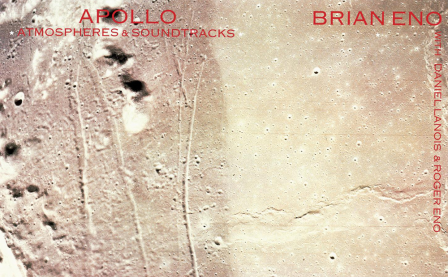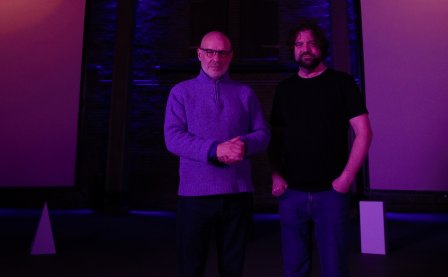“[This middle ground between control and chaos] happens to be an issue with the music I make. It’s made for a place somewhere between architecture and gardening. It’s not a situation where I’m finessing every tiny detail. I basically set a process in motion and then watch it happen. A lot of the design work is prior to the thing starting, rather than trying to keep control of it once it has started. You try to design the process carefully enough so you get the results you want and don’t have to intervene.”
– Brian Eno, in conversation with Ha-Joon Chang at The Guardian
When FM3 introduced their Buddha Machine in 2005, Brian Eno famously bought eight of them. Here was his concept of ambient music realized as an object, but further, the Buddha Machine acted as a kind of user-generated process. The listener would initiate the machine and determine the length of the loops and the composition of the session, which could last for anywhere from 30 seconds to days (or as long as the batteries held out). Since then, Eno has developed many projects dealing directly with process-generated music, from the software piece 77 Million Paintings to the computer game soundtrack Spore to his recent iOS apps, Bloom and Scape. Eno has become a music designer, a creator of tools that in their arrangement give rise to composition.
With Lux, we hear the results of Eno creating and activating a set of these tools (though among them is a modest piano). But unlike Merzbow, who stands at the opposite end of the process music spectrum, Eno’s tools partake of ethereality and fragility, though still retaining a hint of organic chaos. Lux’s delicacy can’t be overstated. The compositional process sounds something akin to the hanging of sonic drapes across a 75-minute window, each differing slightly in color or texture, some placed perfectly in sequence, others threatening to fall from their appointed zone. These evocations retain plausible deniability of meaning, as if coldly daring the listener to narratize the unfolding procedure. But a slight insinuation of anxiety flows through the work, gently disturbing the simple peace of silence.
In short, Lux is exactly what one might expect from Eno in ambient mode, here manifesting with a blip of chaos in an opaque sea, like a drop of ink muddling a solution of milk. It responds to passive listening on the less wakeful layers of consciousness, just as it will answer deeper queries. Its suspended melodies can paint a mood to fill a space or fracture into a puzzle whose pieces one can find tonally and temporally strewn across the work’s extent. Meanwhile, the composer’s hands seem safely tucked behind his back. Lux walks the line between creation and occurrence, impetus and flow, and in doing so it evades criticism; this is yet another outflowing of nature, a series of events that merely happen, shrinking from any grasp. It doesn’t move the listener so much as suggest directions. Ultimately, Lux continues Eno’s ambient work, and that may be all that needs to be said about it.
More about: Brian Eno




